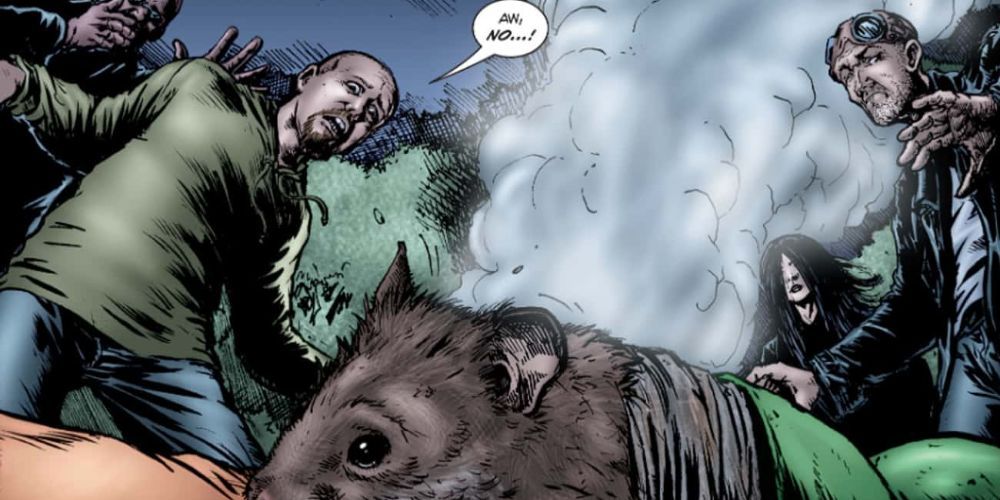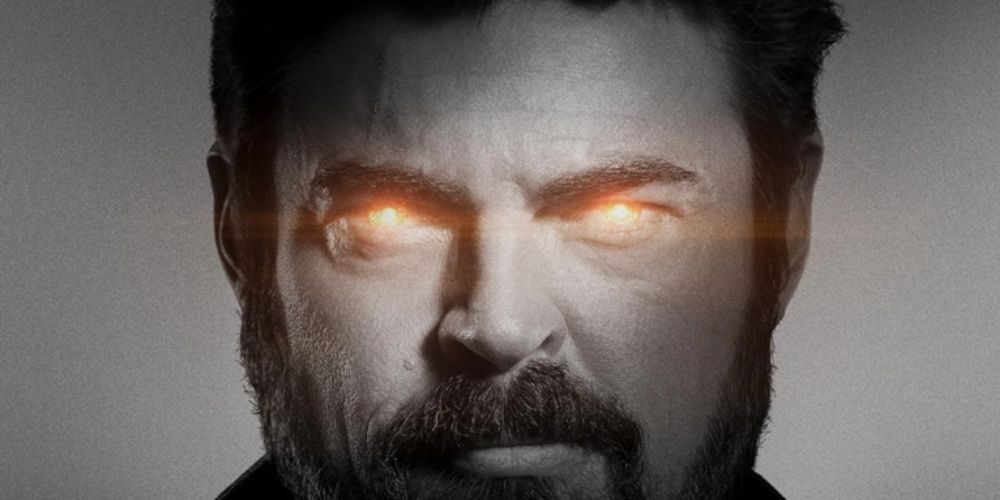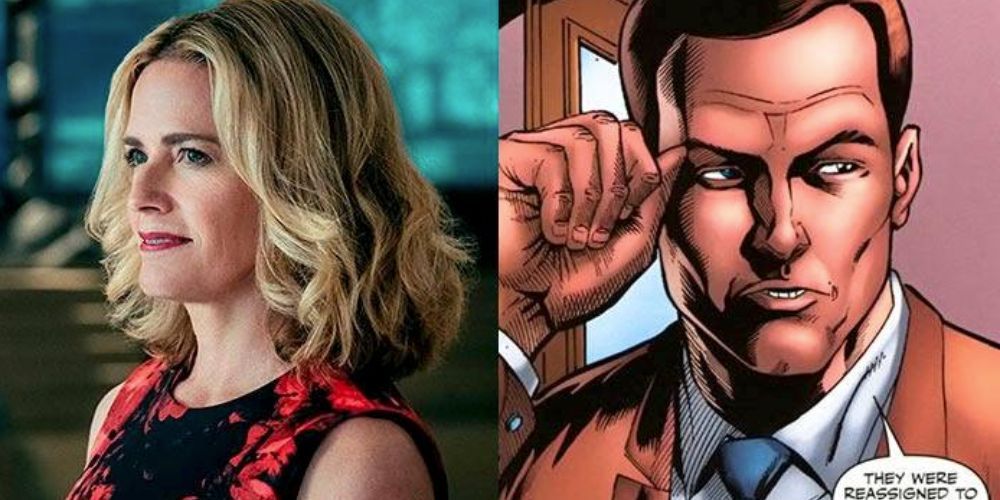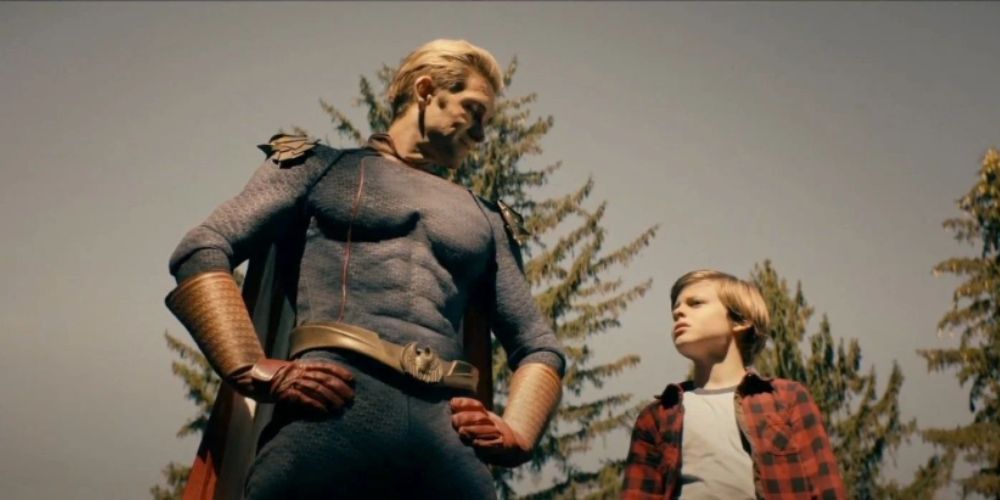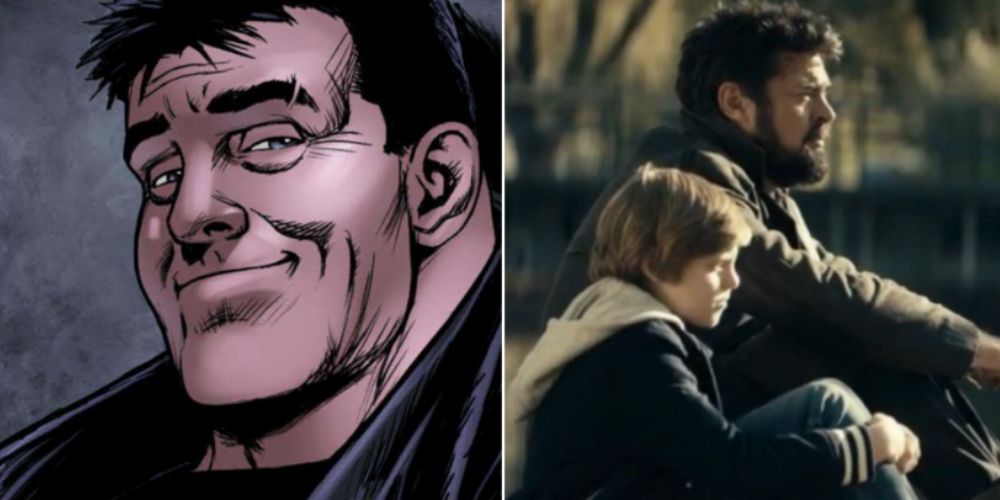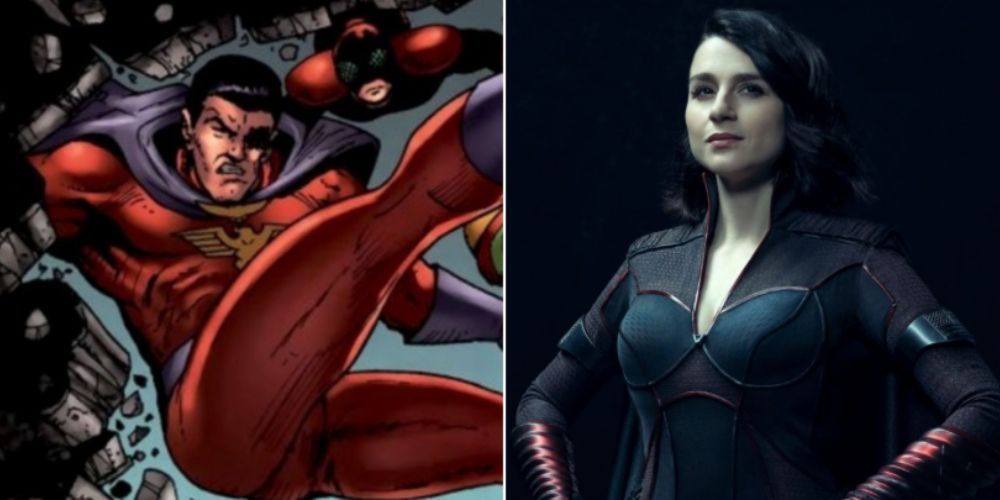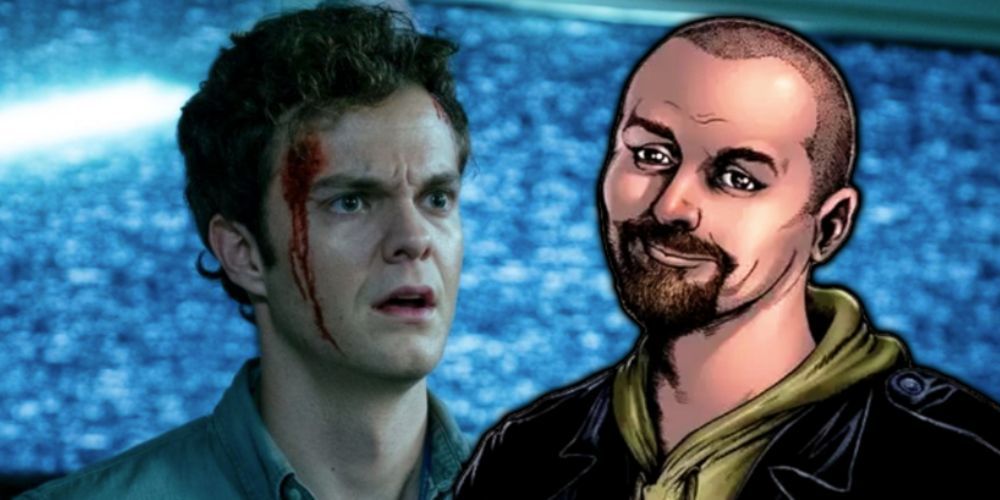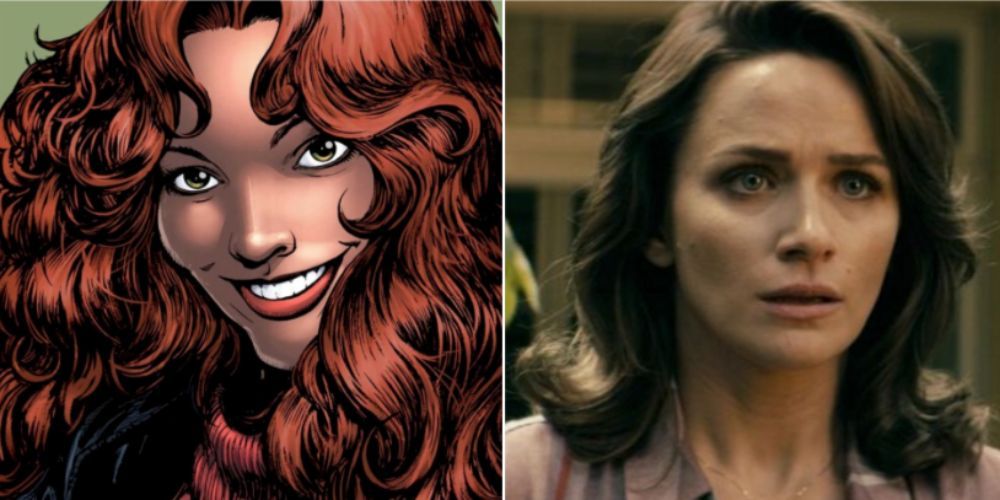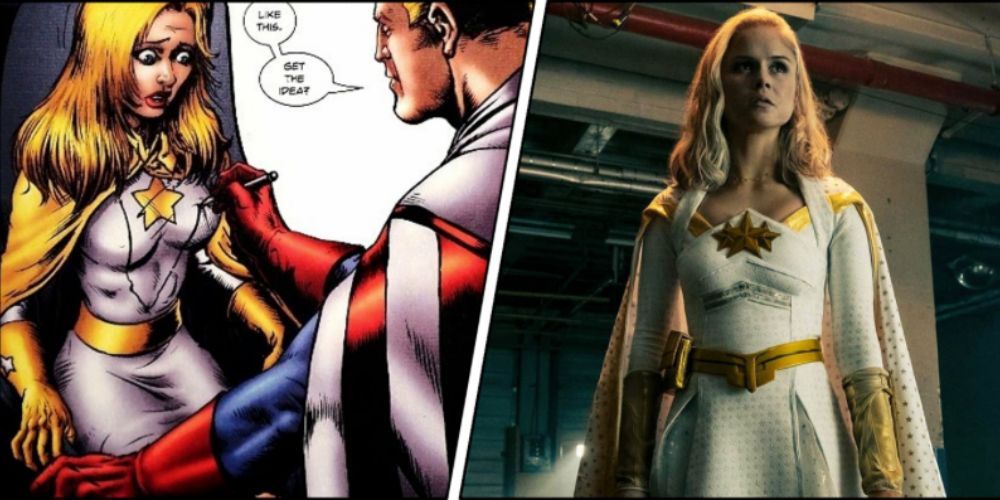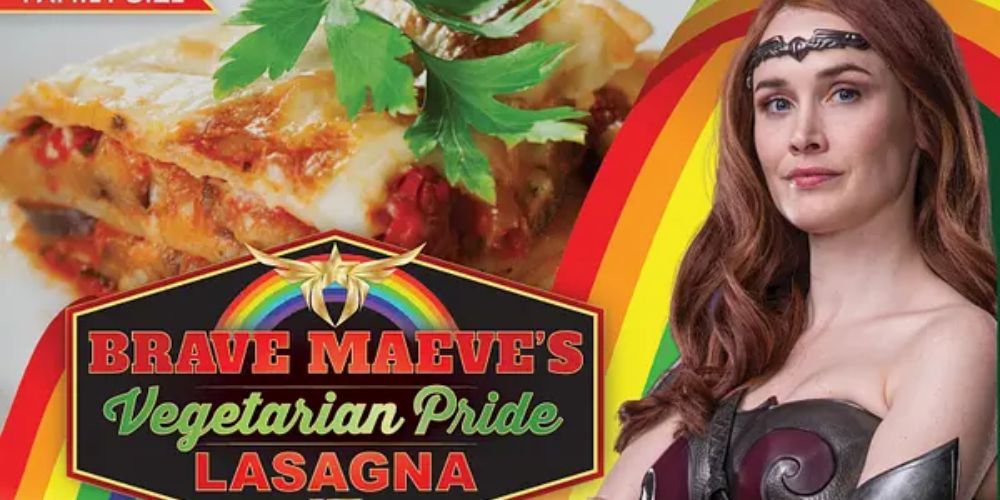As times change, so does the media that reflects it. The Boys comics, written by Garth Ennis and co-created, designed, and illustrated by Darick Robertson, was first released in 2006. It would be almost 15 years before the comics were adapted into the hit series on Amazon Prime, which retained all the goriness, gutsiness, and satirical commentary that made the comics so unique.
The world in 2022 is a wildly different one than in 2006; social issues and cultural phenomenons have changed, as well as audiences' tastes and demands. There is plenty to love about the comics, but showrunner Eric Kripke and the rest of the production team managed to keep the best aspects of the source material while significantly improving others. Here are 10 things The Boys TV series did better than the comics.
10 Less Reliance On Shock Factor
Part of the reason it took so long for The Boys to finally be adapted for television is the excessive amount of sex and gore in the comics, which had to be toned down quite a bit—but ultimately for the better. Regardless of one's sense of humor or sensitivity to offensive material, there are plenty of moments in the comics seemingly inserted with the sole intention of being shocking, especially scenes of sexual assault that serve no point to the greater story (and some even played for laughs).
Again, the comics were first released in the mid-2000s; what was acceptable then isn't necessarily now, and not everything ages well (and that's okay). The Boys TV series recognizes this and maintains that original "edge" and dark humor in other ways, without pandering to the PC crowd or the internet edge-lords, and leaving more to the imagination.
9 The Boys Using Compound V Is Actually A Story Event
When Hughie first joins The Boys in the comics, he's horrified how the crew regularly injects themselves with small amounts of Compound V so they stand a chance at fighting supes. Although it hasn't occurred in the first two seasons of the series yet, the trailer for season 3 (which dropped a couple of weeks ago) has teased that Billy Butcher finally makes the decision to take Compound V.
By making it a significant story event, it'll mark a shift in Butcher's character development; though he's presumably taking desperate measures following Becca's death, he may become what he despises the most.
8 Stillwell's Characterization
James Stillwell, The Seven's superior, is nothing to sneeze at—he's even more sociopathic and emotionless than Homelander and prioritizes Vought over absolutely anything. However, there wasn't much room for his development, and despite his intimidating presence, wasn't that interesting of a character.
Madelyn Stillwell, his replacement in the series, is equally ruthless and an accurate satirization of "girlbossification," even when it hurts or oppresses others. Stillwell's relationship with Homelander is quite different as well, maintaining her control over him with a strange Oedipal relationship rather than sheer intimidation alone.
7 Inclusion Of Ryan
In the comics, not only does Becca die during childbirth, Butcher kills her newborn, believing its father is Homelander (though this was later disproven in a crazy end twist). In the series, not only does Becca survive, but so does her son Ryan, who is fathered by Homelander and inherits some of his powers.
Although Becca despises Homelander, he makes an earnest effort to connect with Ryan (in his own twisted, self-serving way). It will be interesting to see what happens with Ryan in season 3, especially now the poor kid has to live with accidentally killing his mother while trying to save her from Stormfront.
6 Butcher Isn't Just A Straight-Up Psychopath
Keeping the beard wasn't the only thing that changed about Butcher in the series: he also has more of a heart. Comic Butcher was a ruthless psychopath who, in many ways, wasn't that different from Homelander – the one who motivated Butcher's desire for revenge. Some may seem the softening of Butcher on TV as a disservice to the character, but it ultimately lends itself to the relationships that are present in the series and not in the comics, like with Becca and Ryan. Portraying Butcher as an anti-hero allows him to be more sympathetic and more complex in general.
5 Stormfront's Characterization
In another gender-swap from the comics, the Nazi supe who led the team Payback in the comics was remodeled into the sarcastic, meme-savvy, newest addition to The Seven. Although Stormfront's personality initially comes off likable, that quickly changes when she's not only outed as a racist but as a literal 100-year-old Nazi and former wife of Frederick Vought, the company's founder.
Stormfront joined The Seven as a way to promote her agenda, which in turn allowed for commentary on how corporations are willing to turn a blind eye to white supremacy if it means saving their public image. This doesn't stop Homelander from starting a romantic relationship with her, though he seems to actually disagree with her racist beliefs. While the comic Stormfront is killed off fairly quickly by the Soviet supe Love Sausage, his female counterpart is burnt to a crisp by Ryan.
4 Hughie Is Way More Likable
One of the biggest character changes was Hughie Campbell, who was initially based off actor Simon Pegg, but was too old to play the character by the time the show was released. Jack Quaid was cast instead (though Pegg was cast as Hughie's father, in a nice acknowledgement to the original source). Much of his characteristics stayed, such as his naivety and gentler nature acting as a foil for Butcher. However, the new Hughie has a greater agency and is more self-reliant and confident, while comic Hughie had a tendency to be weaker and—for lack of a better word—irritating.
In one of comic Hughie's more detestable moments, when Starlight confides in him about being sexually assaulted by every male member of The Seven, he slut-shames her and storms off instead of offering her compassion. And, somehow, he's still dating her in the end after an already unsatisfying ending.
3 Becca Lives... For A While, At Least
Although she was only present for a disappointingly short time, keeping Becca Butcher alive allowed for the development of another strong character, and she's the one who's solely responsible for ensuring Ryan doesn't grow up to be another Homelander.
Becca's assumed death was the one thing that kept Butcher determined to exact his revenge; finding her alive was even more unpredictable for him than for the audience. Her actual death at the end of season 2 is hotly debated, with some claiming that she was a wasted character, while others argue that keeping her alive will derail Butcher's plans.
2 Better Treatment Of Starlight
Starlight's character remained one of the most canonical, and being arguably the kindest person in the series, she deserves better, especially in the comics. Her experience of being sexually assaulted in the comics (twice—first by The Seven and another attempted one by A-Train) not only had no payoff in the story, but she also wasn't shown any compassion afterward, even from Hughie (as mentioned previously).
While the series kept the subplot about Vought forcing her to change her costume to something much more revealing, the comics take that a step further by literally forcing her to wear a micro-kini, as if that would ever realistically happen. But above all, the show developed her character into a real superhero with a complex backstory, and not just as a love interest.
1 Direct, Specific Satirization Of Cultural Phenomenons
The Boys comics are rooted in social and political commentary, and at the time of their release were a satirization of the Bush administration and fervent patriotism in a post-9/11 society. The TV series was able to take that ball and run with it, skewering capitalistic exploitation, PR stunts, corporate social justice, the non-stop barrage of superhero content, and other cultural phenomenons that have permeated the 2020s. While keeping in the spirit of the comics, the series manages to integrate real-life issues on a greater (and even more relevant) level.


